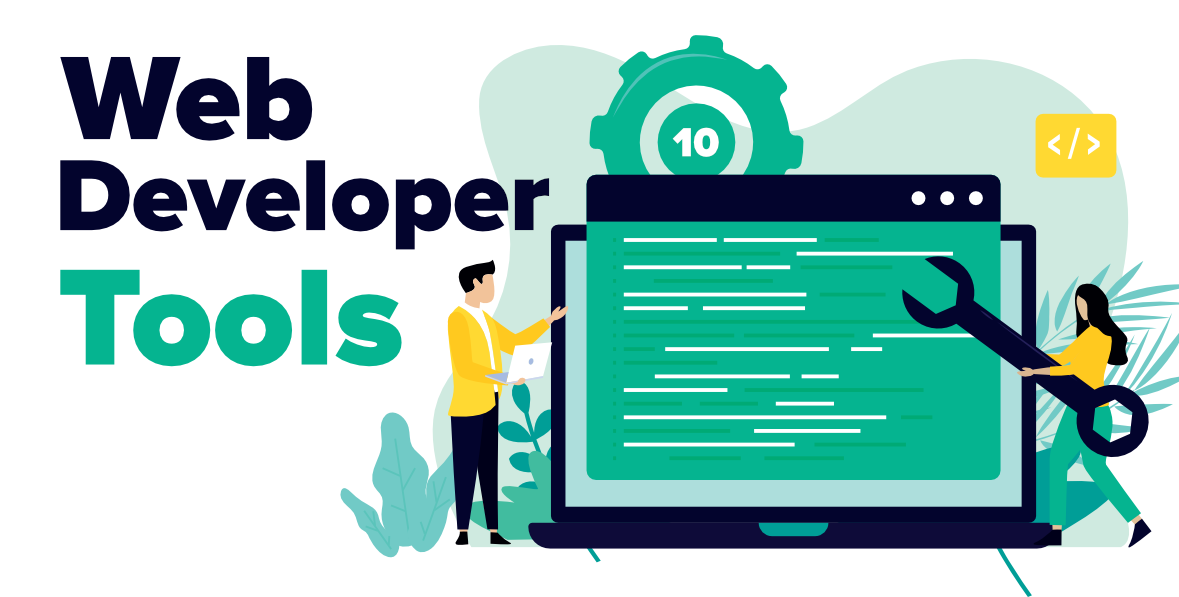In the fast-paced world of web development, having the right tools at your disposal can make a world of difference. Whether you’re a seasoned developer or just starting out, leveraging the right tools can streamline your workflow, boost productivity, and ultimately lead to better outcomes. In this blog post, we’ll explore 10 essential web development tools that every developer should know about.
- Visual Studio Code:
Visual Studio Code, or VS Code, has emerged as one of the most popular code editors among developers. Its extensive library of extensions, built-in Git support, and powerful debugging capabilities make it a favorite among developers working on web projects. - Git and GitHub:
Version control is crucial in web development, and Git along with platforms like GitHub provide a robust solution for managing code repositories, collaborating with team members, and tracking changes over time. - Chrome DevTools:
Chrome DevTools is a set of web developer tools built directly into the Google Chrome browser. From inspecting and debugging HTML, CSS, and JavaScript to analyzing network performance, DevTools offers a comprehensive suite of features for web developers. - Bootstrap:
Bootstrap is a popular front-end framework for building responsive and mobile-first websites and web applications. With its grid system, pre-designed components, and extensive documentation, Bootstrap simplifies the process of creating modern and visually appealing web interfaces. - Sass:
Sass, or Syntactically Awesome Stylesheets, is a CSS preprocessor that extends the capabilities of CSS with features like variables, nesting, and mixins. By allowing developers to write more maintainable and organized stylesheets, Sass enhances productivity and makes styling complex web projects more manageable. - jQuery:
While JavaScript frameworks like React and Vue.js have gained prominence in recent years, jQuery remains a valuable tool for simplifying DOM manipulation, event handling, and AJAX requests. Its lightweight nature and broad browser support make it a versatile choice for web developers. - Postman:
Postman is a powerful API development environment that simplifies the process of testing, documenting, and sharing APIs. With features like automated testing, mock servers, and collaboration tools, Postman streamlines API development workflows and improves productivity. - Lighthouse:
Lighthouse is an open-source tool from Google that helps developers improve the quality and performance of web pages. By running audits on factors like performance, accessibility, and SEO, Lighthouse provides actionable insights for optimizing web projects and enhancing user experience. - Figma:
Figma is a collaborative interface design tool that enables developers to create, prototype, and collaborate on web designs in real-time. With features like multiplayer editing, version history, and integrations with other design and development tools, Figma facilitates seamless collaboration between designers and developers. - Webpack:
Webpack is a module bundler for JavaScript applications that simplifies the process of managing and optimizing dependencies. By bundling assets, optimizing code, and enabling features like hot module replacement, Webpack enhances the performance and efficiency of web development projects.
Conclusion:
In the dynamic field of web development, staying abreast of the latest tools and technologies is essential for success. By incorporating these 10 essential tools into your development toolkit, you can streamline your workflow, boost productivity, and build better web experiences for your users. Whether you’re a front-end developer, back-end developer, or full-stack developer, these tools can help you stay ahead of the curve and deliver outstanding results in your web development projects.

